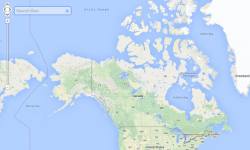It seems to me that those arguing for
regionalism want something akin to wan the American revolutionaries wanted in the late 18th century: strong, almost independent provinces and a weak federal government which has only limited powers.
In many respects that's what we got in 1867 - look at
§§91 and 92 of the BNA. §91.29 is a hole big enough to allow almost anything but by then the authors - in London - had seen, in the USA, that "states' rights" led to some insurmountable problems.
It seems to me that Canadians (and Americans, Australians, Brits, Germans and Indians and so on) want a
strong national government. It's probably natural given modern transportation and communications - in 1867 a trip from Halifax to Victoria was a once-in-a-lifetime adventure, now it is a matter of a few hours and one change of planes (in YYZ

). People feel that they are at least as much Canadian as British Columbian or Nova Scotian and they expect similar standards of public services everywhere in Canada.
Many of the intrusions that the federal government has made into areas of exclusive provincial jurisdiction (§92) were made at the request of t.he provinces, during both world wars. Canadians didn't;t object and there was no pressure, from locals, to shove the feeds out - back where they, Constitutionally, belonged when the emergencies were ended.
In most federal states there are two chambers - one in which the people, on a roughly equal (one person-one vote) get to elect the people who will make §91 work and another in which the political partners in Confederation, the provinces, have their voices.
In my mind equal, elected and effective makes sense in the second chamber but only if we have, say, just five provinces (BC+ Yukon, the Prairies + NU and NWT, Ontario, Québec and Atlantic Canada).





